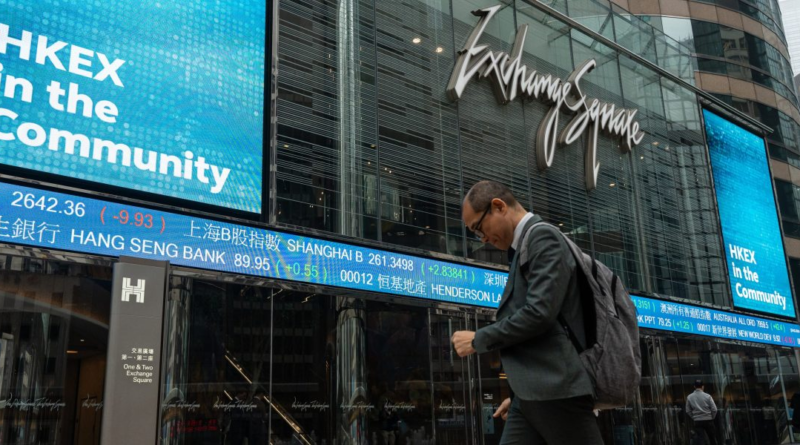Lacking access to mainland Chinese investors, Hong Kong’s crypto ETFs will be ‘nickels and dimes’ compared with U.S. versions
Hong Kong’s Securities and Futures Commission has granted approvals for three spot Bitcoin and Ether exchange-traded funds. Following the conditional authorization, to become officially listed, the asset managers issuing the products will apply to Hong Kong Exchanges and Clearing, the SFC added.
Initial approvals—conditional on products satisfying certain requirements and conditions—have been given to Harvest Global Investments and a partnership between HashKey Capital and Bosera Asset Management (International), according to separate statements from the companies. The Hong Kong unit of China Asset Management announced it has also received approval from the SFC to provide virtual asset management services and is allocating resources to develop the products. In a statement, OSL Digital Securities said it would provide custodial services for the products.
Since the approval of 10 U.S. spot Bitcoin ETFs on Jan. 11, the products have been a hit, with over $56.2 billion assets under management helping Bitcoin reach an all-time high of $73,737.94 in March, according to CoinGecko data. Two leading Bitcoin ETFs, BlackRock’s IBIT and Fidelity’s FBTC, are among the top-performing 0.1% of roughly 5,500 ETFs that have launched over the past 30 years, Bloomberg data shows.
Experts told Fortune that excitement surrounding the news is inevitable, as Hong Kong is a special administrative region of China, the world’s second-largest economy, which banned all cryptocurrency transactions in September 2021. Moreover, as a result of stagnating equity markets in China, a record amount of Chinese money is flowing into overseas equities. Inflows into 33 onshore ETFs that track foreign benchmarks reached $2 billion in January, according to Bloomberg data, the biggest month since late 2020.
However, if the crypto industry is hopeful that the new Hong Kong ETFs could soon be flooded with Chinese investors looking to gain exposure to banned crypto and escape domestic stock markets, they may want to think again, experts said.
“A lot of people are banking on wealthy Chinese locals, but, officially, you cannot buy this ETF if you’re a mainland Chinese investor,” said Eric Balchunas, a senior ETF analyst at Bloomberg. That’s because it must be listed on something called the Stock Connect, which allows Chinese citizens to invest in certain Hong Kong ETFs, and vice versa.
“This will never be available there,” says Balchunas.
As most foreign investors don’t have access to U.S. ETFs, Balchunas sees the most action coming from the likes of domestic retail investors, meaning inflows likely will pale in comparison to those seen in the American market. That’s because Hong Kong’s ETF market was worth about $50 billion—compared with some $8.87 trillion in the U.S.—at the end of the first quarter.
Balchunas sees interest in the Hong Kong products matching that of the U.S.—an ostensibly bullish prediction—which means the products could occupy 0.5% to 1% of the total ETF market, roughly $500 million to $1 billion. “It’s a good additive,” he noted, “but numbers-wise, it’s going to be nickels and dimes compared to the U.S.”
Justin d’Anethan, head of business development for APAC at crypto moneymaker Keyrock, says the Hong Kong spot Ether ETFs—a world first—could not only provide a case study for how these products perform but also offer Hong Kong a “unique proposition” if not replicated elsewhere.
“Presumably,” he added, “the SFC wanted to take it a step further, ahead of their U.S. counterparts, giving access to the second-largest-by-market-cap cryptocurrency. It will be fascinating to see how it’s received—how exactly it’ll be structured and perceived by investors in relation to the staking possibilities.”
The products will have an in-kind subscription and redemption mechanism, meaning Bitcoin and Ether tokens can be swapped for ETF units, and vice versa, in contrast with the cash redemption model that the U.S. alternatives require. This will make the process “essentially cheaper” both from a transfer perspective as well as from a foreign exchange basis, said d’Anethan.




